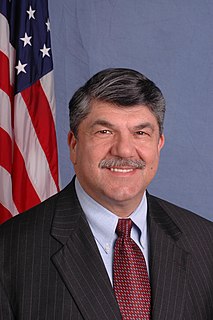A Quote by Robert H. Frank
We've long known that firms can pay higher wages if they spend less on workplace safety enhancement. Libertarians ask, "If a worker is willing to accept higher wages in return for his agreement to exercise greater caution while performing his job, why should the government prevent him from making that choice?" It's a rhetorically powerful question, yet it overlooks the fact that the agreement in question will have adverse effects on others.
Quote Topics
Accept
Adverse
Adverse Effects
Agreement
Ask
Caution
Choice
Effects
Enhancement
Exercise
Fact
Government
Greater
Higher
Him
His
Job
Known
Less
Libertarians
Long
Making
Others
Pay
Performing
Powerful
Prevent
Question
Return
Safety
Should
Spend
Wages
While
Why
Will
Willing
Worker
Workplace
Workplace Safety
Related Quotes
Requiring the payment of higher wages will lead to a loss of some jobs and a raising of prices which drives companies to search for automation to reduce costs. On the other hand, those receiving higher wages will spend more (the marginal propensity to consume is close to 1 for low income earners) and this will increase demand for additional goods and services. Henry Ford had the clearest vision of why companies can actually benefit by paying higher wages.
If a market exists for low-paid work, then we should think about how we can make this type of work more attractive by providing government assistance. Of course, the wage-earner must be able to live off of his wages. We will not allow poverty wages or dumping wages. But the wage earner can receive a combined wage that includes both his actual wages and a government subsidy.
Our mission has been the protection of the wage-worker, now; to increase his wages; to cut hours off the long workday, which was killing him; to improve the safety and the sanitary conditions of the workshop; to free him from the tyrannies, petty or otherwise, which served to make his existence a slavery.
Why should you row a boat race? Why endure the long months of pain in preparation for a fierce half hour that will leave you all but dead? Does anyone ask the question? Is there anyone who would not go through all the costs, and more, for the moment when anguish breaks into triumph or even for the glory of having nobly lost? Is life less than a boat race? If a man will give the blood in his body to win the one, will he spend all the might of his soul to prevail in the other?
I have come to doubt whether the FDA rules should apply to cannabis. There is no question about its safety. It is one of humanity's oldest medicines, used for thousands of years by millions of people with very little evidence of significant toxic effects. More is known about its adverse effects than about those of most prescription drugs.



































